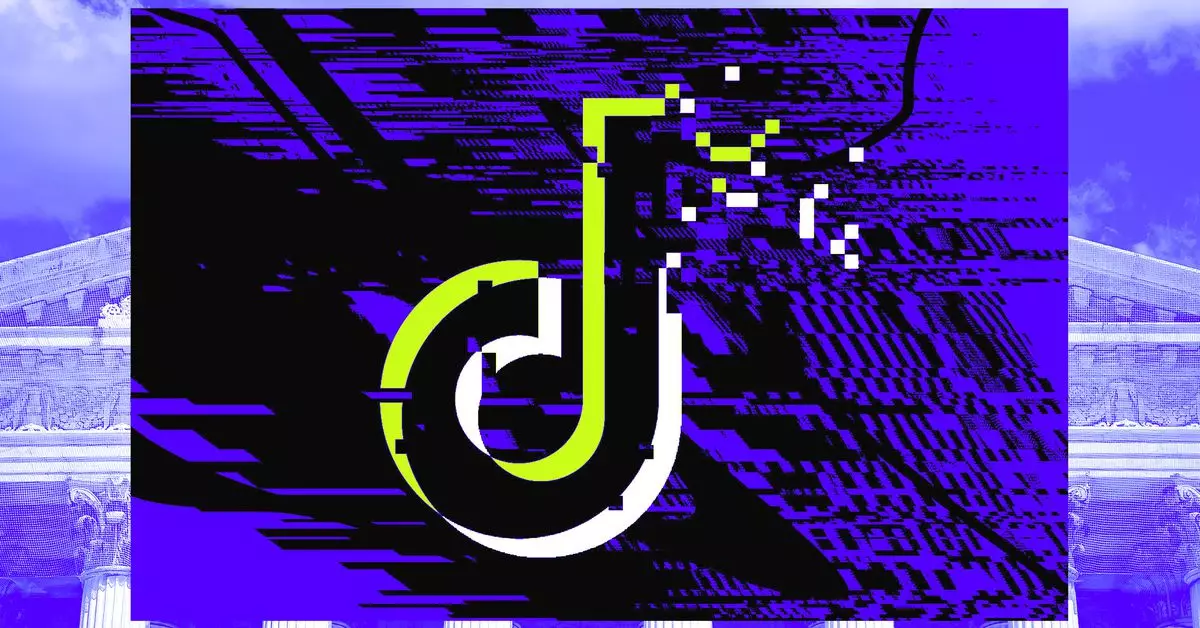In an unexpected turn of events, former President Donald Trump issued an executive order aimed at alleviating immediate pressures on TikTok regarding its ownership and operational compliance with U.S. regulations. The order has stirred significant discussions surrounding its legality, potential implications for American companies, and the ongoing tension with ByteDance, the app’s Chinese parent company.
On his first day back in office, Trump directed the Department of Justice to suspend enforcement of a controversial rule that could force TikTok to divest from ByteDance or face potential bans in the United States. This controversial decision comes subsequent to a previous ban he attempted to enforce during his presidency back in 2020, indicating a continuation of his administration’s tumultuous relationship with the popular social media platform. With the expansive reach of TikTok in the digital marketplace, many legal experts are questioning his ability to unilaterally pause what they describe as legally binding regulations.
The executive order postpones the enforcement period by extending it for 75 days, allowing the Trump administration to determine a course of action deemed appropriate. The directive includes an assurance that the Attorney General will inform stakeholders that there have been no violations of related statutes, attempting to mitigate potential liabilities for American companies that might face significant repercussions should TikTok fail to comply with federal guidelines.
As Trump’s administration navigates this precarious terrain, crucial uncertainties loom large. The executive order seems to skirt a bipartisan law established on January 19, 2023, allowing for extensions only under specific conditions—namely, the announcement of a credible sale of TikTok to a non-adversarial buyer, which has yet to occur. Legal interpretations suggest that attempting to supersede existing laws, as Trump appears to do, may lead to legal confrontations that could span multiple years.
American tech giants, including Apple and Google, are likely feeling the weight of the administrative pressure. Those companies could face astronomical penalties if they are found in violation of the law, with estimates reaching up to $850 billion. Although Trump’s executive order appears to be an effort to ease the burden on these companies and allow TikTok some breathing room, the potential for litigation remains a primary concern that could deter American companies from reengaging with the platform.
The ramifications of Trump’s directive extend beyond immediate compliance issues. Corporations are often risk-averse and tend to tread carefully when legal ambiguities are present. The order explicitly states that it does not create enforceable rights against the United States, implying that the protections offered may not withstand judicial scrutiny. This adds another layer of complexity for companies weighing their options in this fraught environment. Executives must now grapple with a double-edged sword: adhere to Trump’s call, risking penalties, or distance themselves from TikTok, potentially incurring the former president’s wrath.
Additionally, Trump’s assertion of a joint venture wherein the U.S. government would hold a 50% stake in TikTok introduces further complications regarding operational control and ownership transparency. As of now, no formal framework or description of how this joint venture would function has been provided, leading to widespread speculation and certainty surrounding the future of the app in the U.S. market.
Trump’s executive order regarding TikTok represents more than just a significant political maneuver; it unveils a tumultuous and uncertain legal landscape for American businesses navigating foreign competitors in the technology space. As legal experts continue to dissect the nuances of the order, the ramifications of this decision will likely resonate beyond the immediate context of social media engagements. The tensions between national security concerns and the burgeoning influence of technology companies will become increasingly paramount as the landscape evolves. As stakeholders assess their positions, the future of TikTok and its relationship with American firms remains in a precarious balance hovering on the edge of legality and corporate responsibility.

